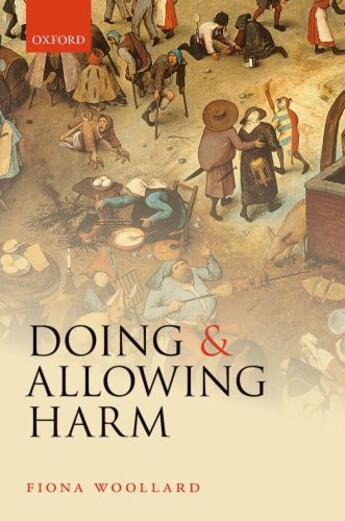-
Nombre de pages : (-)
-
Collection :
(-)
-
Genre :
(-)
-
Thème :
Non attribué
-
Prix littéraire(s) :
(-)
Résumé:
Doing harm seems much harder to justify than merely allowing harm. If a boulder is rushing towards Bob, you may refuse to save Bob's life by driving your car into the path of the boulder if doing so would cost you your own life. You may not push the boulder towards Bob to save your own life.... Voir plus
Doing harm seems much harder to justify than merely allowing harm. If a boulder is rushing towards Bob, you may refuse to save Bob's life by driving your car into the path of the boulder if doing so would cost you your own life. You may not push the boulder towards Bob to save your own life. This principle--the Doctrine of Doing and Allowing--requires defence. Does the distinction between doing and allowing fall apart under scrutiny? When lives are at stake, how can it matter whether harm is done or allowed? Drawing on detailed analysis of the distinction between doing and allowing, Fiona Woollard argues that the Doctrine of Doing and Allowing is best understood as a principle that protects us from harmful imposition. Such protection against imposition is necessary for morality to recognize anything as genuinely belonging to a person, even that person's own body. As morality must recognize each person's body as belonging to her, the Doctrine of Doing and Allowing should be accepted. Woollard defends a moderate account of our obligations to aid, tackling arguments by Peter Singer and Peter Unger that we must give most of our money away and arguments from Robert Nozick that obligations to aid are incompatible with self-ownership.
Donner votre avis














